Description
ABSTRACT
An Analysis of Corporate Criminal Liability in Nigeria
Veronica Ngozi Ekundayo*, Orisakwe Okechinyere**, and Olalekan Moyosore Lalude***
Corporate criminal responsibility continues to pose some difficulties in legal discourse. This is because the concept challenges the basic assumptions underlying criminal law. In the past, it was inconceivable that corporations could be held liable particularly under criminal law. The argument generally advanced was that a corporation as an artificial person has no physical existence and therefore could not be subjected to most prescribed penalties attached to offenses. The paper argues that the extant position of Nigeria’s corporate law needs to be reviewed to capture recent realities. The paper concludes that the Nigerian regulatory framework should employ modern approaches in tackling corporate criminal liabilities in Nigeria.
Keywords: Corporate Criminal Responsibility, Criminal Law, Corporate Law, Artificial Person, Regulatory Framework.
INTRODUCTION
Corporate criminal liability as a principle under the criminal law and rule is a controversial topic. This is because it is absurd to hold a company criminally liable as opposed to criminal acts ordinarily done by a person or a group of persons. The concept of corporate criminal liability denotes that a company is a legal person hence cannot be excluded from liability. In the past, it was inconceivable that a corporation should be held liable.1 At common law, a company is a ‘legal person’ or ‘legal entity’ separate from, and capable of surviving beyond the lives of its members.2 The law ascribes to every corporation an independent identity which bestows upon it the capacity to have a name of its own, to sue and be sued, and to have the right to purchase, sell, lease, and mortgage its property in its own name.3 Indeed, the right to sue and be sued presupposes that a company may sue or be sued for both civil and criminal liabilities.4
There is a hallowed principle that a company is different and distinct from its shareholders and would be treated as an independent entity with perpetual succession. This principle was established in Salomon v Salomon.5
* Senior Lecturer of Corporate Governance, Department of Jurisprudence and Private Law, Babcock University, School of Law and Security Studies, Iperu, Nigeria. Email: ek*******@*********du.ng
** Research Assistant, Babcock University, School of Law and Security Studies, Iperu, Nigeria.
*** Doctoral Student, Babcock University, School of Law and Security Studies, Iperu, Nigeria.
- CE Emem and P Uche, ‘A New Dawn of Corporate Criminal Liability Law in the United Kingdom: Lessons for Nigeria’ (2012) 2(1) AJLC 86-98.
- O J Orojo, Company Law and Practice in Nigeria (2nd edn, Lexis Nexis 1984) 162.
- D Folorunsho, ‘Corporate Crimes and Liability under Nigerian Law (Nigerian Law Guru) accessed 21 January 2020.
- ibid.
- Salomon v Salomon [1896] UKHL 1, [1897] AC 22.

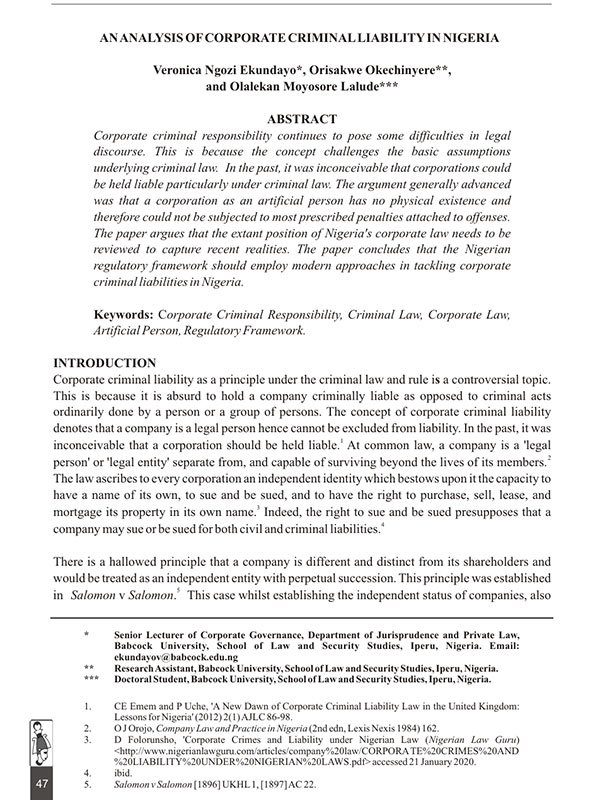
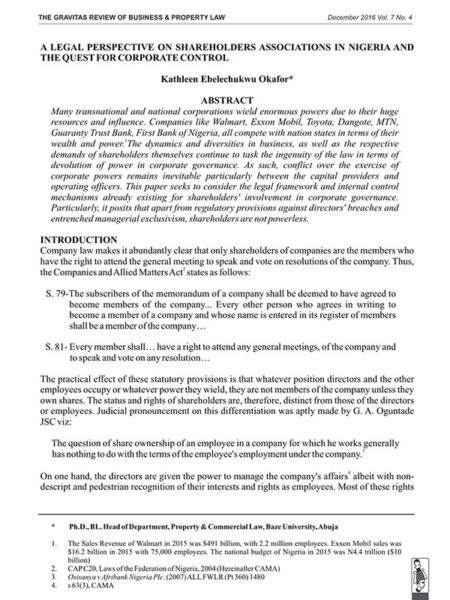
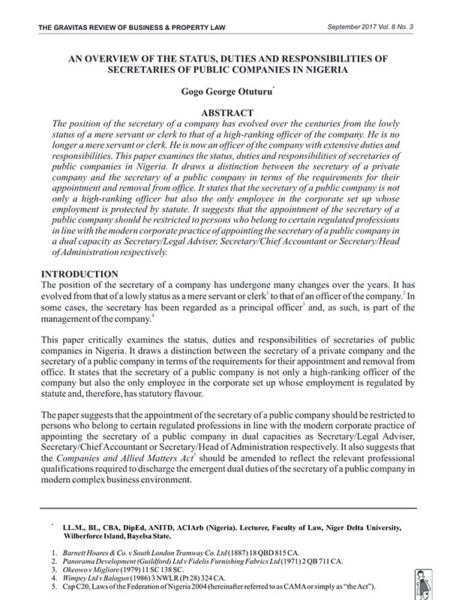
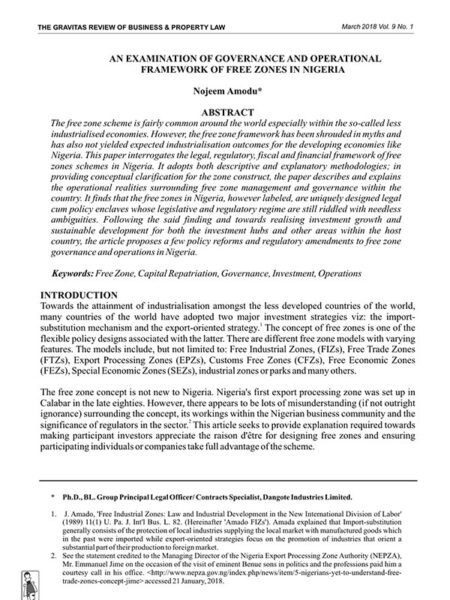
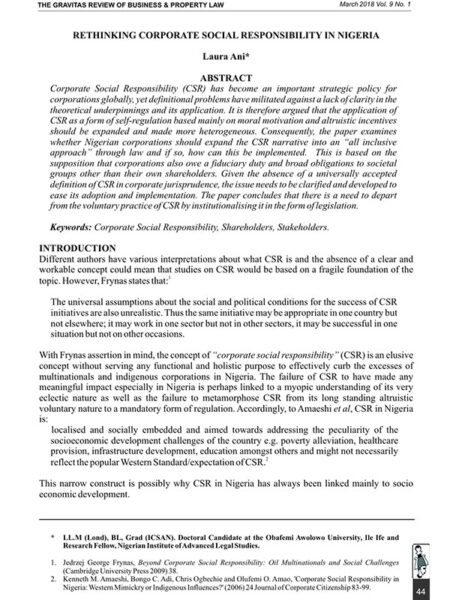


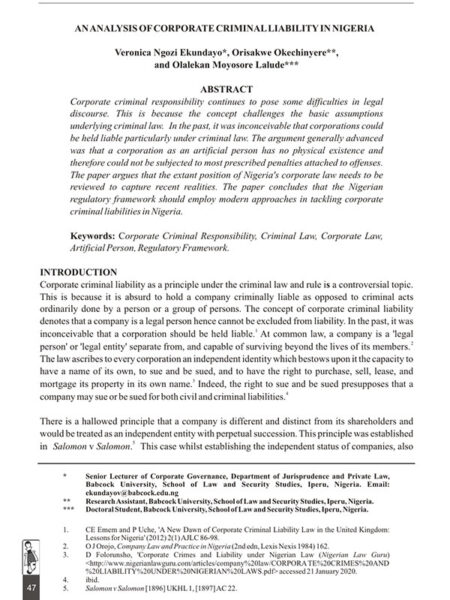
Reviews
There are no reviews yet.